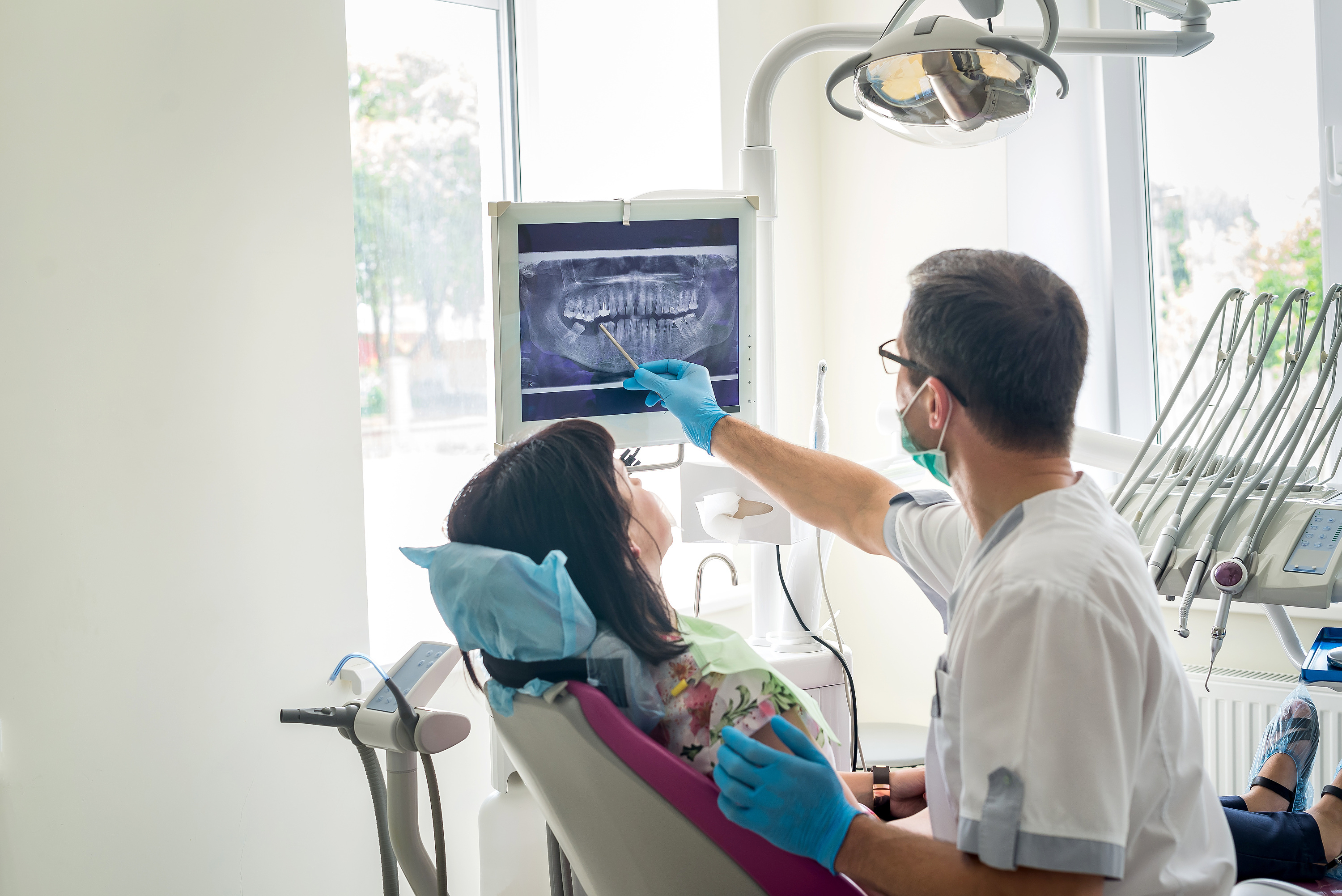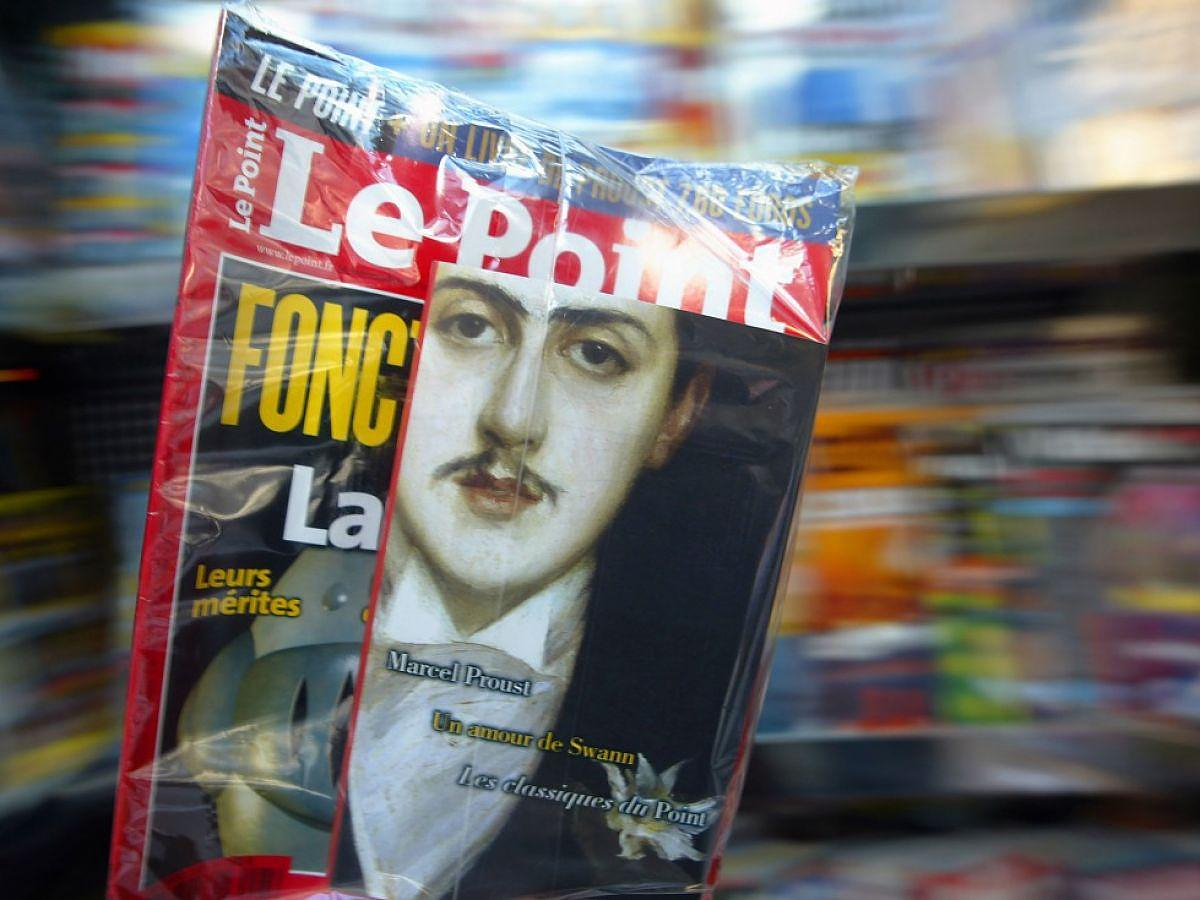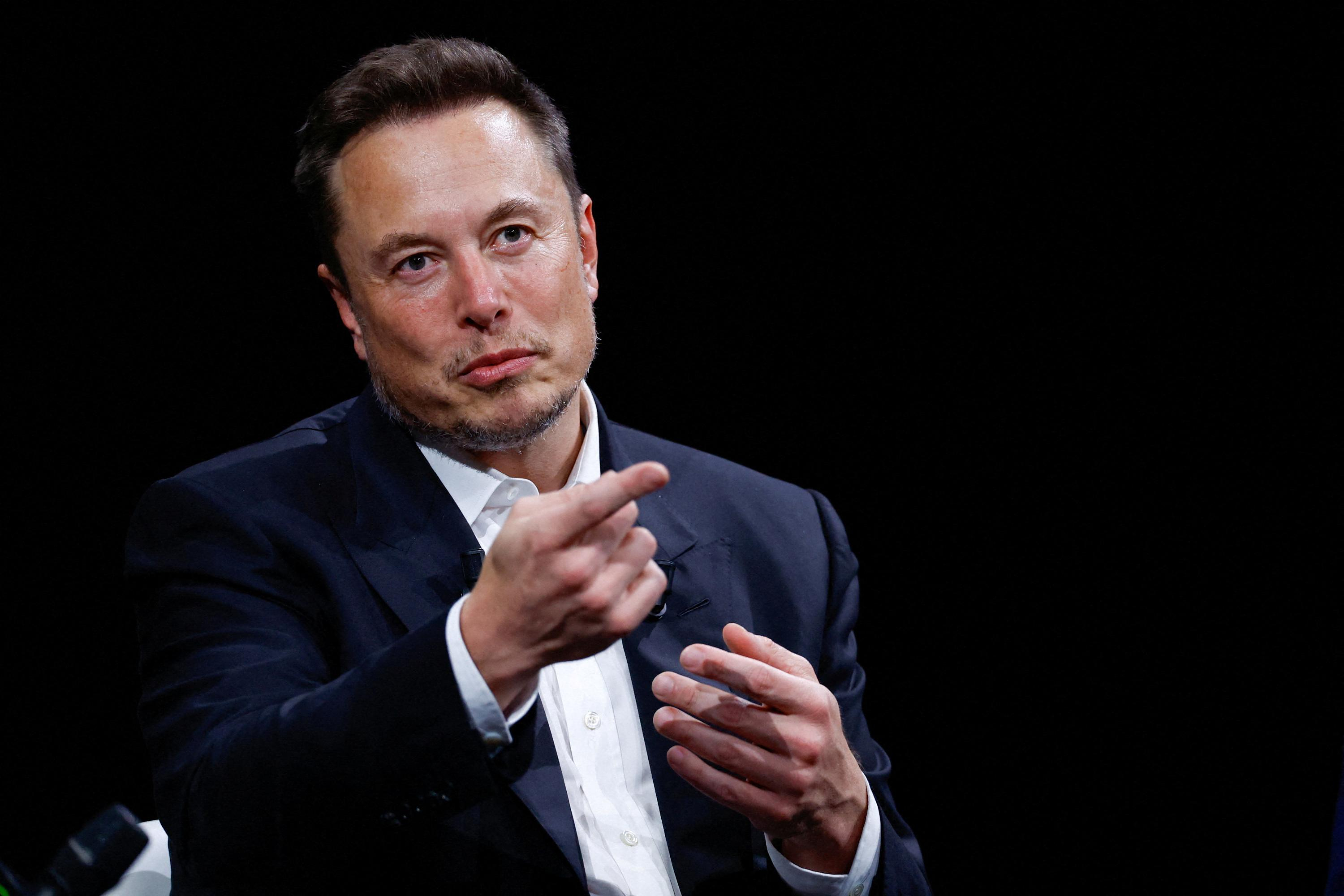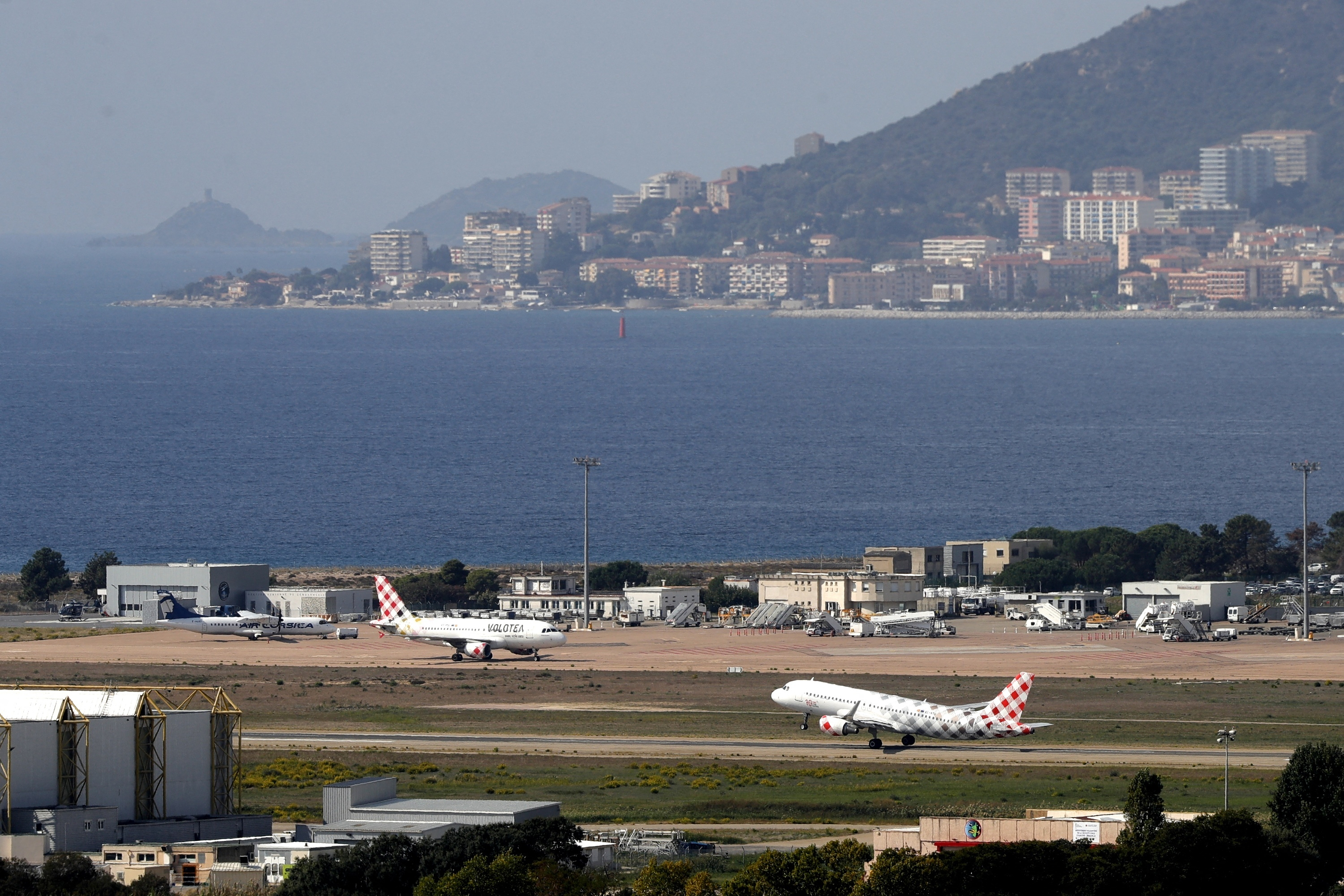The French Prime Minister and the German Chancellor want to give "new impetus" to the tandem, the engine of European construction, like Emmanuel Macron and Mr. Scholz on October 26 in Paris.
Elisabeth Borne will also meet Robert Habeck, vice-chancellor in charge of the Economy and the climate, received on Tuesday in Paris in a rather unprecedented way by the French president, who also spoke with the German Minister of Foreign Affairs Annalena Baerbock.
With the Russian offensive in Ukraine and the energy crisis it generated, "we need Europe more than ever", underlines the entourage of the Prime Minister.
“We can see how essential Europe has been in dealing with certain crises. And being able to make Europe work necessarily requires a very good Franco-German relationship,” according to the same source.
“Together we are stronger” in particular “to face the climate transition and to ensure that between China and the United States, there is a third power which is called Europe”, affirmed Thursday the French Economy Minister Bruno Le Maire, receiving German Finance Minister Christian Lindner.
"I share with Emmanuel Macron the objective of a geopolitical Europe, with the capacity to act much more", declared for his part Olaf Scholz Wednesday before the Bundestag.
To make people forget the energy disputes, Paris and Berlin could show increased solidarity in terms of reciprocal supplies of gas and electricity.
France has already been delivering gas to Germany since mid-October which, in turn, could bring forward to November (instead of January) the increase in its electricity exchange capacities, which will allow France to receive more.
Due to the shutdown of many nuclear reactors, this is the first time in 42 years that France is a net importer of electricity. For Germany too, the turning point is historic because the country usually imported its gas from Russia.
However, the two countries remain divided on the idea of capping gas prices. And Germany's aid plan of 200 billion euros for individuals and businesses in the face of soaring prices makes its neighbors fear a distortion of competition.
Mr. Le Maire and his German counterpart Robert Habeck wished in this regard on Tuesday to maintain "fair competition" between the two countries.
They also showed a desire to "accelerate" European industrial projects in the face of the massive investment plan of the United States (Inflation Reduction Act, IRA), which is also likely to distort competition and on which Ms. Borne and Mr. Scholz discuss a common European response.
- No calendar -
Revealed in broad daylight by a postponement of the Franco-German Council of Ministers, these tensions have however brought certain projects out of the impasse, such as the political agreement reached between the manufacturers Dassault and Airbus on the European combat aircraft project (SCAF ), even if no signing of contracts is expected on Friday.
In the space field, while each country seeks to develop its own mini-launchers, France, Germany and Italy agreed on Tuesday to allow these small rockets to be sent on behalf of the Space Agency. European.
But the anti-missile shield project promoted by Berlin, competing with that of Paris and Rome, will be addressed "in another format of discussions".
No date should either be formalized for the next Franco-German Council of Ministers, pending the big reunion on January 22, the 60th anniversary of the Franco-German Treaty.
Communication could go all the better with Ms. Borne as she is the "most German" minister of the French government because of her "seriousness", her "refusal of the effects of the sleeve" and her "discretion", believes Alexandre Robinet- Borgomano, from the Institut Montaigne.
Hans Stark, adviser to the French Institute of International Relations (Ifri), thinks that this visit aims above all to "establish a way of working" and to avoid appearing divided in the face of Russia.

 His body naturally produces alcohol, he is acquitted after a drunk driving conviction
His body naturally produces alcohol, he is acquitted after a drunk driving conviction Who is David Pecker, the first key witness in Donald Trump's trial?
Who is David Pecker, the first key witness in Donald Trump's trial? What does the law on the expulsion of migrants to Rwanda adopted by the British Parliament contain?
What does the law on the expulsion of migrants to Rwanda adopted by the British Parliament contain? The shadow of Chinese espionage hangs over Westminster
The shadow of Chinese espionage hangs over Westminster What High Blood Pressure Does to Your Body (And Why It Should Be Treated)
What High Blood Pressure Does to Your Body (And Why It Should Be Treated) Vaccination in France has progressed in 2023, rejoices Public Health France
Vaccination in France has progressed in 2023, rejoices Public Health France Food additives suspected of promoting cardiovascular diseases
Food additives suspected of promoting cardiovascular diseases “Even morphine doesn’t work”: Léane, 17, victim of the adverse effects of an antibiotic
“Even morphine doesn’t work”: Léane, 17, victim of the adverse effects of an antibiotic Collection of booklet A stalls in March
Collection of booklet A stalls in March Kering expects a 40 to 45% drop in operating profit in the first half
Kering expects a 40 to 45% drop in operating profit in the first half Smartphones, televisions, household appliances… MEPs adopt a “right to repair”
Smartphones, televisions, household appliances… MEPs adopt a “right to repair” Fintechs increasingly focused on business services
Fintechs increasingly focused on business services The standoff between the organizers of Vieilles Charrues and the elected officials of Carhaix threatens the festival
The standoff between the organizers of Vieilles Charrues and the elected officials of Carhaix threatens the festival Strasbourg inaugurates a year of celebrations and debates as World Book Capital
Strasbourg inaugurates a year of celebrations and debates as World Book Capital Kendji Girac is “out of the woods” after his gunshot wound to the chest
Kendji Girac is “out of the woods” after his gunshot wound to the chest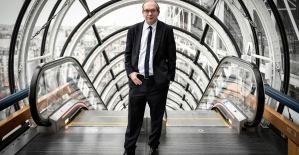 The Court of Auditors scrutinizes the management and projects of the Center Pompidou
The Court of Auditors scrutinizes the management and projects of the Center Pompidou Skoda Kodiaq 2024: a 'beast' plug-in hybrid SUV
Skoda Kodiaq 2024: a 'beast' plug-in hybrid SUV Tesla launches a new Model Y with 600 km of autonomy at a "more accessible price"
Tesla launches a new Model Y with 600 km of autonomy at a "more accessible price" The 10 best-selling cars in March 2024 in Spain: sales fall due to Easter
The 10 best-selling cars in March 2024 in Spain: sales fall due to Easter A private jet company buys more than 100 flying cars
A private jet company buys more than 100 flying cars This is how housing prices have changed in Spain in the last decade
This is how housing prices have changed in Spain in the last decade The home mortgage firm drops 10% in January and interest soars to 3.46%
The home mortgage firm drops 10% in January and interest soars to 3.46% The jewel of the Rocío de Nagüeles urbanization: a dream villa in Marbella
The jewel of the Rocío de Nagüeles urbanization: a dream villa in Marbella Rental prices grow by 7.3% in February: where does it go up and where does it go down?
Rental prices grow by 7.3% in February: where does it go up and where does it go down? Europeans: “All those who claim that we don’t need Europe are liars”, criticizes Bayrou
Europeans: “All those who claim that we don’t need Europe are liars”, criticizes Bayrou With the promise of a “real burst of authority”, Gabriel Attal provokes the ire of the opposition
With the promise of a “real burst of authority”, Gabriel Attal provokes the ire of the opposition Europeans: the schedule of debates to follow between now and June 9
Europeans: the schedule of debates to follow between now and June 9 Europeans: “In France, there is a left and there is a right,” assures Bellamy
Europeans: “In France, there is a left and there is a right,” assures Bellamy These French cities that will boycott the World Cup in Qatar
These French cities that will boycott the World Cup in Qatar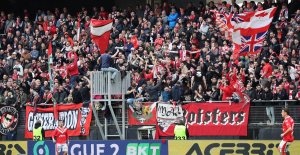 Football: VAFC supporters are ironic after their descent into National
Football: VAFC supporters are ironic after their descent into National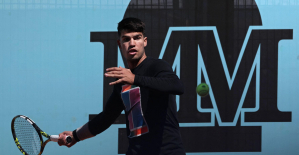 Tennis: Carlos Alcaraz should play in Madrid
Tennis: Carlos Alcaraz should play in Madrid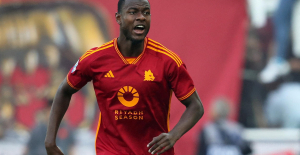 Football: victim of discomfort in the middle of a match in mid-April, Evan Ndicka will resume training with AS Roma
Football: victim of discomfort in the middle of a match in mid-April, Evan Ndicka will resume training with AS Roma Ligue 1: PSG almost champion, OM, shock for the C1… 5 reasons to follow an exciting evening
Ligue 1: PSG almost champion, OM, shock for the C1… 5 reasons to follow an exciting evening




